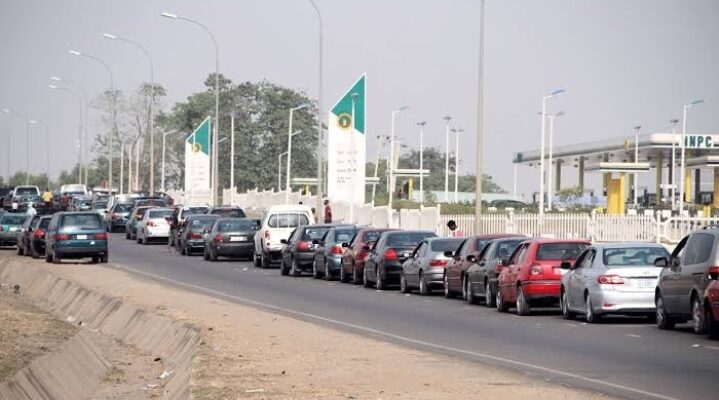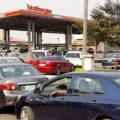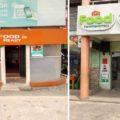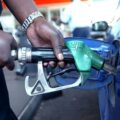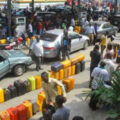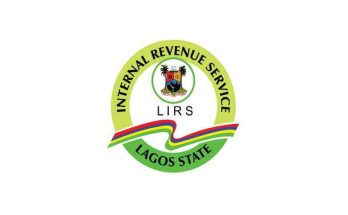By Ejiofor Toochi
On Sunday, Victor set out to buy fuel for his generator only to be turned away at a filling station selling at N650 per liter. The manager had refused to sell fuel to customers with kegs/jerrycans. He was left with no choice but to buy fuel from another station at N900 per liter.
“There was a queue in the filling station, and the manager insisted that they don’t sell for kegs on Sunday. I waited for 15 minutes and ended up going to the more expensive filling station with a very poor meter,” Victor explained.
Across the nation, the scene is similar—long lines of cars, each driver waiting to fill their tank, while dealing with exorbitant prices.
Nigerians are once again battling another fuel scarcity crisis. Fuel prices have risen from N700 to N1,000 per liter, with even higher rates in the black market. The limited number of operational filling stations has led to long queues and severe traffic. As a result, transportation costs have also increased.
Why is fuel scarcity back?
The Nigerian National Petroleum Company Limited (NNPCL), the sole importer of petroleum products, has attributed the fuel scarcity to distribution challenges. They link these issues to recent thunderstorms and bad weather, which disrupted ship-to-ship transfers, affected berthing at jetties, truck load-outs, and the delivery of petrol to filling stations.
Oil marketers have also highlighted ongoing logistics and supply difficulties. Billy Gillis-Harry, President of the Petroleum Products Retail Outlets Owners Association (PETROAN), mentioned on Channels Television that until NNPCL resolves these logistics issues, oil marketers must manage and distribute among their members.
“NNPCL is doing its best to bring in products bit by bit, and we can only supply what we have,” he said.
There was however speculation which claimed that the Nigerian National Petroleum Company Limited (NNPCL) owes $6.8 billion to international oil traders and has not remitted revenues to the Federation Account since January.
Such delays would result in disruptions in the fuel supply to Nigeria, as traders might hold back or postpone fuel shipments, leading to shortages and subsequent fuel scarcity in the country. NNPCL however, in a press release on Sunday, denied these claims. asserting that it regularly meets its financial obligations.
Additionally, the Independent Petroleum Marketers Association of Nigeria (IPMAN) blamed the ongoing fuel scarcity to a lack of supply from NNPCL. Shina Amoo, Chairman of IPMAN’s Ore Depot, revealed on Channels Television on Tuesday that NNPCL has not supplied petroleum products directly to IPMAN members for the past three years.
“There is no supply anywhere. The available supply is poorly distributed. We have been raising concerns about this for a long time,” Amoo stated. As a result, IPMAN members now source petroleum from private depots at a higher price, around N850 per liter, explaining the high prices of fuel.
What are Nigerians saying?
Many Nigerians across the country have taken to social media to express their frustration over the situation, particularly given the broader economic challenges in Nigeria.
Lola Okunrin wrote, “One of their points for removing subsidy on fuel is that we will no longer have scarcity but since May last year, we have had fuel scarcity and long queues like 20 times.”
Alabi Lawrenz also shared on X, “This nonstop fuel scarcity and queues reminds me of them Obasanjo days. Nigeria has regressed heavily. We cannot even see the expensive fuel to buy and we are a crude oil exporting Nation. Na wa.”
“When we were paying fuel subsidy we didn’t have this much fuel scarcity. The mismanagement in this admin is on another level,” Jagganiyu added.
The way forward
The Nigerian National Petroleum Company Limited (NNPCL) has appealed to Nigerians for understanding during this period. This was stated in a press release issued on Monday, which partially read, “On the current fuel queues in parts of Lagos and the FCT, the Executive Vice President, Downstream, Mr. Dapo Segun appealed for understanding from Nigerians, saying that the Company is working with relevant stakeholders to address the distribution, evacuation and logistics challenges.”
The Chief Corporate Communications Officer of NNPC, Olufemi Soneye, also informed a correspondent at Punch that the company is working diligently to resolve the fuel supply challenges, with expectations that the queues will clear by mid-week, August 21st.
Meanwhile, President Bola Ahmed Tinubu departed for France on Monday and has yet to address the issue.

